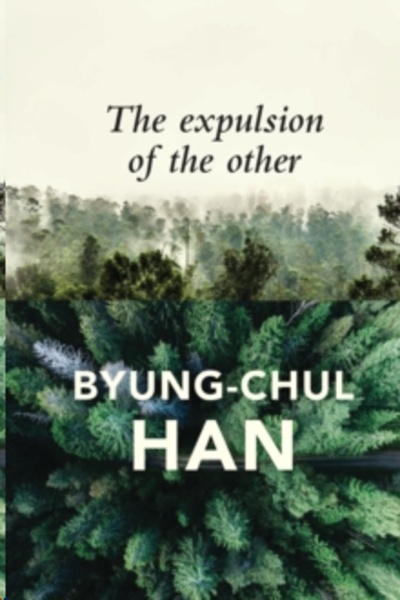The Expulsion of the Other : Society, Perception and Communication Today

Editorial Polity
Fecha de edición marzo 2018 · Edición nº 1
Idioma inglés
EAN 9781509523061
100 páginas
Libro
encuadernado en tapa blanda
Resumen del libro
The days of the Other are over in this age of excessive communication, information and consumption. What used to be the Other, be it as friend, as Eros or as hell, is now indistinguishable from the self in our narcissistic desire to assimilate everything and everyone until there are no boundaries left. The result is a 'terror of the Same', lives in which we no longer pursue knowledge, insight and experience but are instead reduced to the echo chambers and illusory encounters offered by social media.
In extreme cases, this feeling of disorientation and senselessness is compensated through self-harm, or even harming others through acts of terrorism. Byung-Chul Han argues that our times are characterized not by external repression but by an internal depression, whereby the destructive pressure comes not from the Other but from the self. It is only by returning to a society of listeners and lovers, by acknowledging and desiring the Other, that we can seek to overcome the isolation and suffering caused by this crushing process of total assimilation.
Biografía del autor
Byung-Chul Han (Seúl, Corea del Sur, 1959) es un filósofo y ensayista experto en estudios culturales. Se le considera uno de los filósofos más destacados del pensamiento contemporáneo por su crítica al capitalismo y la sociedad del trabajo. <br> Han estudió Filología Alemana y Teología en la Universidad de Múnich y Filosofía en la Universidad de Friburgo, donde se doctoró con una tesis sobre Martin Heidegger. Ha dado clases de Filosofía en la Universidad de Basilea, de Filosofía y Teoría de los medios en la Escuela Superior de Diseño de Karlsruhe y de Filosofía y Estudios culturales en la Universidad de las Artes de Berlín.<br> Es autor de más de una veintena de títulos entre los que cabe destacar: La sociedad del cansancio, La sociedad de la transparencia, Psicopolítica, No-cosas, Infocracia y Vida contemplativa. Todos ellos han sido traducidos a varios idiomas.<br> El trabajo de Han une tradiciones filosóficas orientales y occidentales, tomando ideas de pensadores como Friedrich Nietzsche, Martin Heidegger, Michel Foucault, Sigmund Freud, Hannah Arendt y Walter Benjamin, entre otros. Explora temas como la tecnología y los efectos del neoliberalismo en los diversos aspectos de la vida humana, el poder, la comunicación, la vigilancia, el consumismo, el trabajo, la autoexplotación, la transparencia, los rituales, la inactividad y las identidades individuales y colectivas; y es considerado como el sucesor de pensadores como Roland Barthes o Giorgio Agamben.








